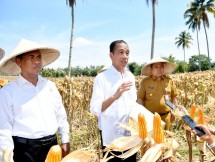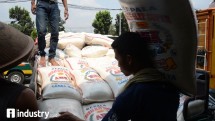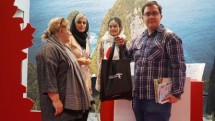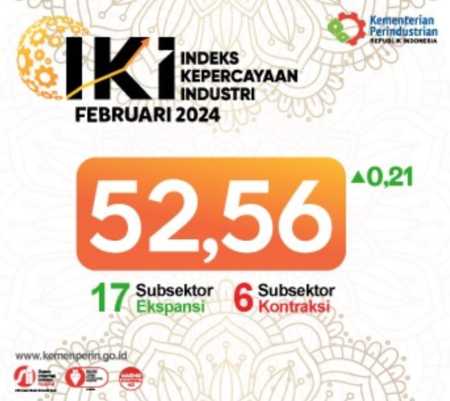Thailand Develops Industrial Estate Through State-Owned Enterprises
By : Dhiyan W Wibowo And Aldi Firhand | Sunday, November 05 2017 - 20:09 IWST

Illustration of Thai Industrial Activity (IST)
INDUSTRY.co.id - Thailand, Regional development efforts through the development of industrial estates in the country largely handed over to private parties, while the government moves as a pioneer and provide beleid for structuring.
Unlike Thailand, this white elephant country has a state-owned enterprise which is specifically responsible for the development and development of industrial estates, namely Industrial Estate Authority of Thailand (IEAT).
The Authority of the Industrial Estate Authority of Thailand (IEAT) is a business entity under the control of the Ministry of Industry.
The agency is responsible for the development and development of industrial estates, with a number of factories from various industries being organized systematically in the form of clusters.
It also acts as an extension of the Thai government in an effort to decentralize industrial development to all provinces throughout Thailand.
So far IEAT's responsibilities include developing industrial areas and encouraging the private sector and government agencies to undertake similar developments.
It is also responsible for providing public facilities and infrastructure that can support industrial operations, as well as providing environmental governance systems including industrial disaster prevention systems and their recovery.
IEAT is also responsible for licensing business operations in an industrial area, and provides incentives, flexibility and other facilities related to industrial operations.
IEAT also serves as an institution that provides a number of elements of production completeness that enable manufacturers to achieve high-quality production and become competitive industry players in global markets.
As an extension of the Thai government, IEAT implements industrial decentralization and promotes development in a number of provinces, while maintaining and promoting environmental quality in the industrial sector.
In general, IEAT runs its core business in the form of industrial estate developers, establishing cooperation schemes with the private sector in the management and development of industrial estates and industrial ports, development of facilities and completeness of safety, health, environmental and energy services, and carrying out corporate social responsibility.
As a business entity as well as a regulator in the industrial area, IEAT has developed a 'One Stop Service Center' service that aims to provide an initial solution to the end in the process of developing an industrial estate.
Whether in the form of provision of land for purchase or lease, provision of proper plant site location, approval of the filing and granting of licenses required in the construction of the plant, to the development of joint corporate governance with IEAT.
Currently there are 54 industrial areas operating in 15 provinces, with 11 areas operated directly by IEAT and 43 others are run with a scheme of cooperation with developers.
Recently, the Thai Industrial Authority (IEAT) Authority conducted a study in cooperation with the Federation of Thai Industries (FTI) related to the development of an industrial estate specifically for industries called "New S-Curve". The S-Curve industry is the nickname for a number of industries that have a growth record on certain variables over other variables, such as unit growth over a period of time.
Here, the S-Curve model is meant to be a number of new ventures that have applied higher technology and innovation at the time, as the company's growth peaked, and began to experience a cycle of cessation of growth.
Presented by IEAT Governor Veerapong Chaiperm, the study will focus on the potential development of the "New S-Curve" industrial zone in the area of the East Economic Corridor (EEC). Clearly this study will be ammunition for IEAT to promote the industry, and encourage the country's economy.
"We started studying the S-Curve industrial zone in April on 1000 Rai (Raj) land," Veerapong said as quoted by the Bangkok Post. Rai is a unit of land that is commonly used by Thai society. One unit of Rai equals 1,600 square meters or 0.16 hectares, or 40 meters multiplied by 40 meters.
New S-Curve industries that will be pushed into the EEC according to Veerapong include robotics, logistics and aviation industries, biofuels and biochemicals, the digital economy, and medical centers.
The Eastern Economic Corridor area has been designed by the government as a policy flagship for economic growth. This area has an area of 30,000 Rai in Chon Buri, Rayong and Chachoengsao provinces.
Later the area will accommodate investments with 10 main sectors, namely the latest generation of automobiles, smart electronics, tourism, medical and healing, agriculture and biotechnology, food, robotics for industry, logistics and aviation, biofuels and biochemicals, and the digital industry.
According to Veerapong, the study will focus on the development of supporting facilities such as supply of electricity. This is one of the main programs of the Thailand government for the latest generation industries.
"We will need a long time because we need every detail information related to industrial zones including energy supply, environmental issues and conservation will also be included in the study of the latest generation industries," he said.
Related to the performance, Veerapong said that the new investment in IEAT throughout Thailand for five months of fiscal year 2017 (October 2016 - February 2017) is allocated to the land of 1,476 Rai. This figure is an achievement of 49% of the 3,000 Rai targeted during the fiscal year ending September 2017.
Of the new investment allocation, about 80% are in the Eastern Economic Corridor area.
"The investment projects and their value will continue to increase until the end of this year since the government announced a clear policy to promote the Eastern Economic Corridor. It has encouraged investors to come to IEAT and ask for some information on how to start investing in the Eastern Economic Corridor area, "he said.
Read Also
Indonesia Attracts Thousands of Norwegian Visitors at Travel Expo…
The general election to not disrupt the investment climate in Indonesia
Indonesia's Manufacturing Industry is Rebounds
Indonesia Showcases Premium Halal Products in Turkey
Indonesia's participation in the 'Global Sourcing Expo Australia…
Today's Industry

Selasa, 23 April 2024 - 10:29 WIB
President Jokowi Reaffirms Commitment to Farmers’ Welfare
President Joko “Jokowi” Widodo on Monday (04/22) inspected corn harvest in Boalemo regency, Gorontalo province. “Our corn import has decreased significantly from 3.5 million tonnes to…

Rabu, 28 Februari 2024 - 12:47 WIB
Carsurin and NBRI Strengthen Strategic Alliance to Propel Indonesia’s EV Industry
PT Carsurin Tbk ("Carsurin") and the National Battery Research Institute ("NBRI") are pleased to announce the signing of a pivotal Strategic Alliance Agreement (SAA), marking a significant advancement…

Rabu, 21 Februari 2024 - 08:43 WIB
Gov’t to Continue Disbursing Rice Assistance
President Joko “Jokowi” Widodo has ensured that the Government will continue rolling out the rice assistance program for low-income families. The President made the statement when handing…

Rabu, 21 Februari 2024 - 08:40 WIB
Bapanas Head Ensures Availability of Rice Stock Ahead of Ramadan
The National Food Agency (Bapanas) has ensured the availability of rice for the fasting month of Ramadan and Eid al-Fitr 1445 Hijri/2024 CE. “We believe that there is enough rice for the fasting…

Rabu, 21 Februari 2024 - 08:23 WIB
Receives Chairman of Jababeka (KIJA), Menpora Dito Ready to Support the Development of Sports SEZs
Chairman of PT Jababeka Tbk (KIJA), Setyono Djuandi Darmono met the Minister of Youth and Sports of the Republic of Indonesia (Menpora RI) Dito Ariotedjo at the Kemenpora RI Office, Senayan,…

















News Comment